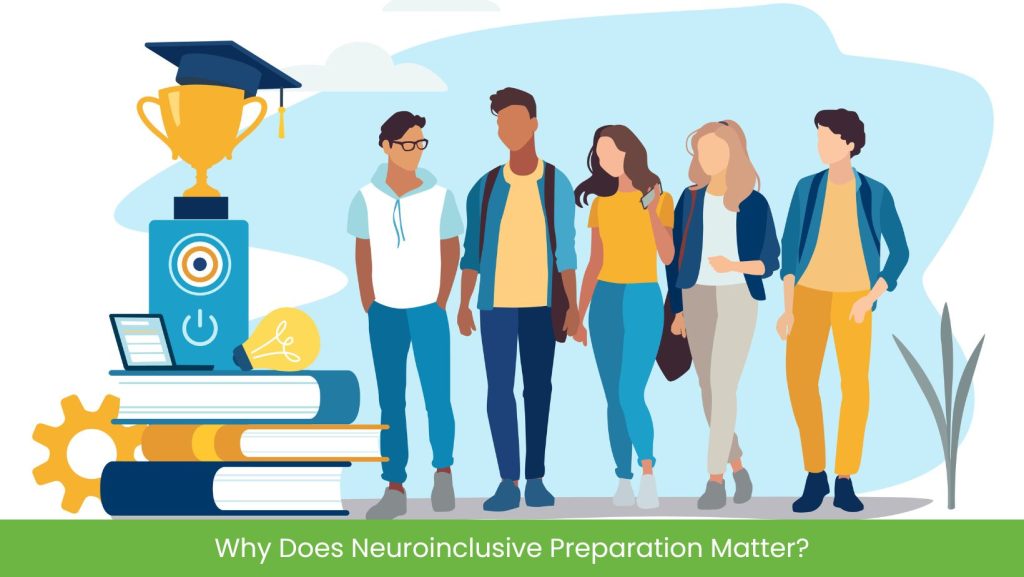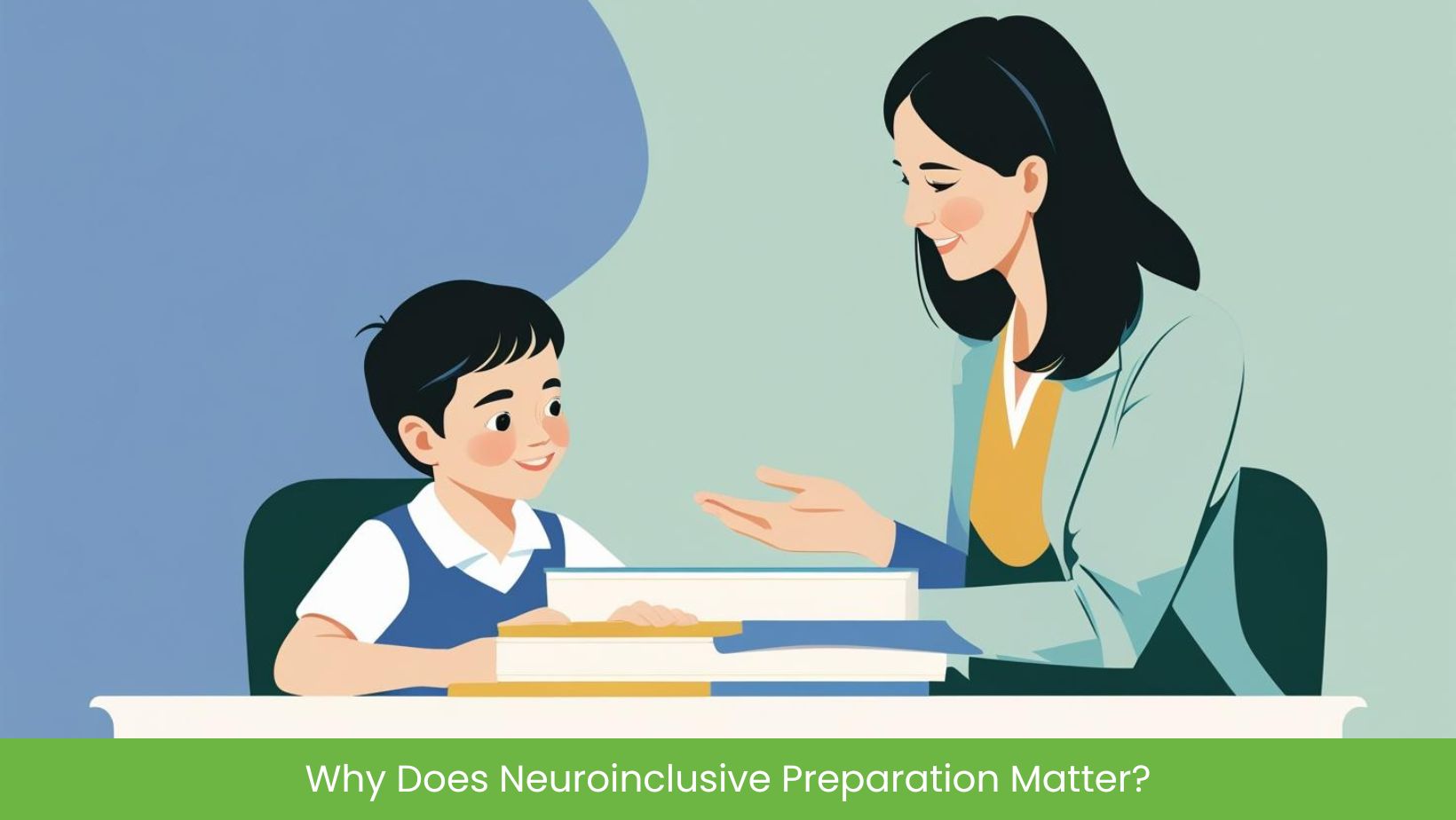Every summer, Evoke Learning’s Postsecondary Transition Program equips students in Grades 10 through 12 with the skills, knowledge, and confidence they need to thrive in college or university. New research confirms that this kind of early preparation isn’t just helpful—it’s essential.
The Conference Board of Canada’s 2025 impact paper, Creating Inclusive Campuses: Neuroinclusive Policies and Practices in Post-Secondary Education, highlights the barriers faced by neurodivergent students in postsecondary settings and offers a roadmap for the types of support that make a meaningful difference. The findings echo the foundational elements of Evoke’s summer transition programming, which empowers students to anticipate, navigate, and succeed in environments that can often feel overwhelming or inaccessible.
Here’s what the research tells us and how Evoke is helping students get ahead of the challenges.
The Invisible Struggle: Why Is Preparation Critical?
According to the report, less than half of neurodivergent students disclose their diagnosis or register with accessibility services at their postsecondary institution. Many worry about stigma or fear their needs won’t be understood or met. As a result, students often attempt to manage on their own, leading to late assignments, course failures, mental health strain, and unnecessary program changes.
Evoke’s Postsecondary Transition Program tackles this challenge head-on by creating a safe and supportive space where students can explore their learning profile, develop self-advocacy skills, and practice executive functioning strategies before school begins. With the help of experienced coaches and mentors, students learn how to articulate their needs and access available supports—confidence-boosting skills that can mean the difference between floundering and flourishing.
Executive Functioning Skills: The Missing Piece
The Conference Board’s study found that executive function challenges were among the most frequently reported barriers to success in postsecondary education. These include difficulties with planning, organization, time management, motivation, and task initiation, skills that are especially demanding for students with ADHD or learning disabilities.
Evoke’s transition program addresses this gap directly. Our coaching model is built around strengthening executive functioning through structured support, skill-building exercises, and personalized routines. Students learn to manage their time, set goals, prioritize tasks, and use tools such as calendars, timers, and checklists. These aren’t just academic skills—they’re life skills that support independence and long-term resilience.
Navigating the Postsecondary Landscape
Many students transitioning to postsecondary education underestimate how complex institutional systems can be. The report highlights inflexible registration processes, inconsistent accommodation practices, and the burden students face in navigating services that are supposed to support them.
That’s why Evoke’s program includes explicit instruction on understanding institutional structures: how to register for accommodations, how to communicate with professors, what rights students have, which accommodations from high school will be offered in postsecondary schools and those that won’t, and what to do if support isn’t forthcoming. Students leave the program knowing how to advocate for themselves, whom to approach for help, what their responsibilities are, and how to follow through.
Mental Health and Sensory Supports: Bridging the Gaps
The transition to postsecondary education often coincides with a sharp drop in familiar supports (often referred to as “scaffolding”). Many students age out of pediatric care or leave behind school-based mental health services, only to find long waitlists or under-resourced counselling services on campus.
The research emphasizes the need for continuous and neuroinclusive mental health services. At Evoke, we recognize that academic coaching must also support emotional well-being. Our program includes mindfulness practices, stress-management strategies, and coaching sessions that encourage self-reflection and emotional regulation. We also help students plan for their sensory needs, whether that means finding quiet study spaces or identifying accommodations that help them stay focused and regulated.
Building Community and Belonging
One of the most powerful insights from the study is the importance of connection. Many neurodivergent students report difficulty making friends, engaging in group work, or finding peers who understand their experiences. Isolation can compound anxiety and reduce a student’s willingness to seek help.
That’s why community-building is a key part of our Postsecondary Transition Program. Students build relationships with their coach and practice the communication skills needed to work with roommates, professors, counsellors, and classmates. By simulating real-world scenarios in a safe and supportive environment, we help students prepare for the social and emotional dimensions of postsecondary life.
The Role of Parents and Caregivers
The transition to postsecondary education doesn’t just affect students—it reshapes the role of parents and caregivers, too. The Conference Board study highlights how many students feel alone in the process of accessing accommodations or navigating institutional systems.
Evoke bridges this gap by involving families in the transition process. We offer guidance to help caregivers understand what supports are available, how to encourage independence without withdrawing support, and how to stay engaged in a student’s success without overstepping. With this shared understanding, families can offer better encouragement, reinforce skills at home, and support the student’s developing autonomy.
Looking Forward: From Preparation to Possibility
The data is clear: Neurodivergent students have the potential to thrive in postsecondary education, but they need support that goes beyond standard accommodations. They need strategies, coaching, community, and the confidence to self-advocate. They need institutions that understand neurodiversity and they need to be prepared for those that don’t.
At Evoke, we believe every student deserves a confident and informed start. Our program is rooted in empathy, evidence, and empowerment. We help students build the skills that research shows make a difference, so they don’t just survive the transition, they thrive in it.
Ready to Support Your Student’s Success?
Learn more about our Postsecondary Transition Program and how it can give your student the head start they need to succeed and grow in college or university.



